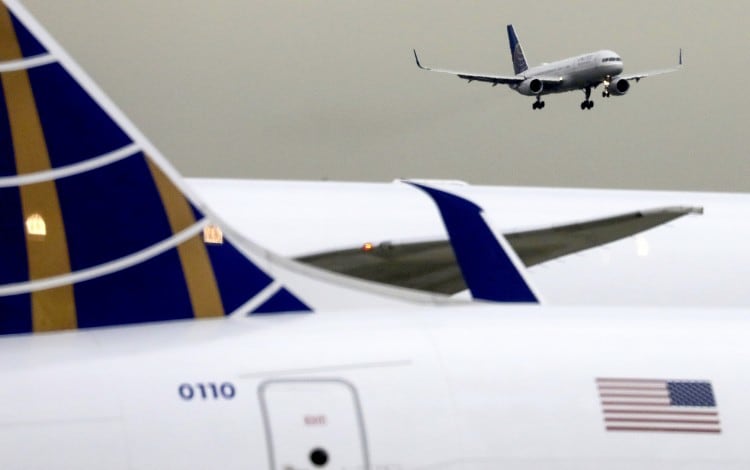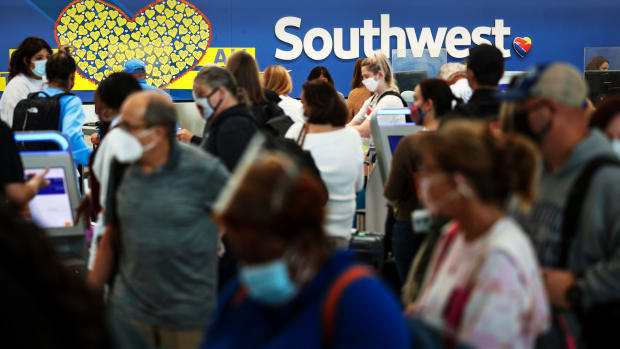
Anyone who had to travel by air over the past week will know the extent of the chaos taking place at many U.S. airports. As storms and extreme weather hit both coasts and the midwest, airports in multiple cities were dealing with a deluge of canceled flights, stranded passengers and the rebooking and administrative mess created as a result.
Some airlines navigated the situation better than others. Even as the weather started to clear on Tuesday, over 60% of Southwest (LUV) flights across the country were canceled. The cancellations prompted the Department of Transportation to call out the airline's "unacceptable rate of cancellations and delays and reports of lack of prompt customer service."
Airports in Seattle, Denver and Chicago were particularly backed up over the past week while more than 3,000 domestic and international flights were canceled.
Still Waiting for Good Travel News
While plane-tracking site FlightAware shows that 2,800 flights scheduled for Wednesday afternoon were canceled, rapidly improving weather conditions in many cities in the Northeast and Pacific Northwest have allowed some travelers to finally make it home.
None of the Wednesday's American Airlines (AAL) flights had been reported canceled while the other two country's biggest carriers--Delta (DAL) and United (UAL) --do not appear in FlightAware's top 10 list of airlines with the highest numbers of cancellations.
Southwest still sticks out with a 62% cancellation and 4% delay rate as of Wednesday afternoon but delays on flights within or into the U.S. are now at 1,841. On Dec. 23, that number was close to 7,000.
The situation at Denver International and Chicago's O'Hare airports also is improving. While the airports are still navigating the weekend chaos, both have fewer cancellations and delays than they did 24 hours ago.

Kevin Dietsch/Getty Images
I Was Supposed To Be On A Southwest Flight
Although nowhere near Southwest, airlines with high rates of cancellations are China-based carriers like China Eastern (CEA) and Air China (AICAF) . The only other U.S.-based airline in the top 10, SkyWest (SKYW), had a respective cancellation and delay rate of 5% and 3%.
As over 90% of all American flights canceled were by Southwest, the airline is currently under major pressure to both get stranded passengers where they need to be and prevent a similar situation from occurring in the future--in particular, by modernizing its booking and operating systems.
"It's phones, it's computers, it's processing power, it's the programs used to connect us to airplanes. That's where the problem lies, and it's systemic throughout the whole airline," Southwest Airlines Pilots Association President Captain Casey Murray told CNN.
For those already scheduled to take a Southwest or other canceled flight, strategies include navigating at an airline's service counter or trying to reach a representative to get rebooked as soon as possible. Over the weekend, many travel experts advised those stuck on hold to try the airline's Canadian or British phone number.
Given the widespread nature of the delays, travelers will likely need to hop on alternative solutions. While airlines are obligated by law to get customers rebooked eventually, those willing to pay for an alternative airline's flight and fight for a reimbursement later or volunteer to be placed on a flight to a nearby city may get to their destination faster than those who are not as flexible. Read more about how to deal with a canceled flight: Southwest Flight Canceled? How You Might Be Able to Get Home.







